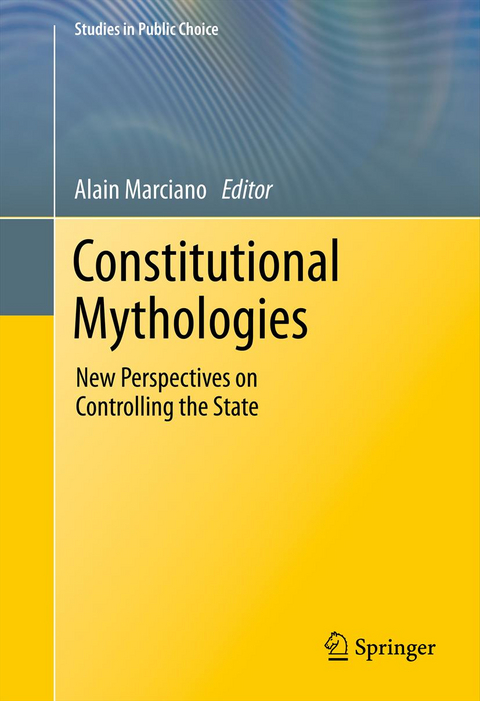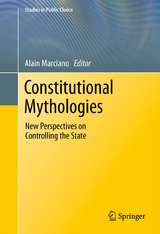Constitutional Mythologies
Springer-Verlag New York Inc.
978-1-4419-6783-1 (ISBN)
This is particularly true with constitutions. Constitutions are very important for societies: a constitution is a document — even in societies based on “unwritten” constitutions — which binds citizens together, creating unity among them, and which forms the framework within which our activities take place. As Nobel Prize laureate James Buchanan used to say: constitutions contain the rules of the social game we play in our everyday life. However, constitutions are not frequently debated by citizens. This is why we end up with common beliefs about these constitutions: they are above our heads, around us. We take them, their role, function, and nature as given. The purpose of this volume to investigate and challenge common constitutional myths.
Featuring contributions from prominent economists, political scientists, and legal scholars, the chapters in this volume address such myths as “constitutions are binding social contracts,” “constitutions are economic documents” and “constitutions are legal documents.” Illustrating their analyses with historical and contemporary examples from the United States, Canada, and Europe, the authors build a multi-layered approach to understanding constitutions and their implications for social and political influence.
Alain Marcianois Associate Professor of Economics at the University of Reims Champagne Ardenne, where he teaches courses at the graduate and undergraduate levels in public economics, economic history, microeconomics, and law and economics. He received his doctorate at the University of Aix-Marseille. Previously, he was on the faculty at the Universite de Corse Pascal Paoli. He serves as Editor of the Review of Philosophical Economics and as a reviewer for many journals, including Springer's European Journal of Law and Economics. He has published many articles and book chapters, is the author of three books published in French, and editor of several volumes, including Reader in Law and Economics (Routledge) and Democracy, Freedom, and Coercion (Elgar).
Binding Contract or Evolving Focal Point of Coordination: The Meaning of Constitutional Political Economy.- Consent, or Coercion? A Critical Analysis of the Constitutional Contract.- Identity, Constitutions and Constitutional Political Economy.- Power Relations in the Canadian Constitution: The Myths We are Expected to Believe.- Checks and Balances at the OK Corral: Restraining Leviathan.- Popular Sovereignty: A Case Study from the Antebellum Era.- The Constitution of a Direct Democracy.- Constitutional Political Economy.- The Myth of the Constitution as an Economic Document – Do Constitutions Enable Entire Societies to Make Them Better Off?- The European Court of Justice. a Guarantor or a Ianus Geminus?- A Comparison of Central Bank and Judicial Independence.- The Dual Rationale of Judicial Independence in Constitutional Discourse.
| Reihe/Serie | Studies in Public Choice ; 23 |
|---|---|
| Zusatzinfo | VIII, 180 p. |
| Verlagsort | New York, NY |
| Sprache | englisch |
| Maße | 155 x 235 mm |
| Themenwelt | Geisteswissenschaften ► Philosophie |
| Recht / Steuern ► EU / Internationales Recht | |
| Sozialwissenschaften ► Politik / Verwaltung ► Politische Theorie | |
| Wirtschaft ► Volkswirtschaftslehre ► Wirtschaftspolitik | |
| Schlagworte | coercive power • Constitution • constitutional myth • constitutional political economy • Democracy |
| ISBN-10 | 1-4419-6783-4 / 1441967834 |
| ISBN-13 | 978-1-4419-6783-1 / 9781441967831 |
| Zustand | Neuware |
| Haben Sie eine Frage zum Produkt? |
aus dem Bereich




